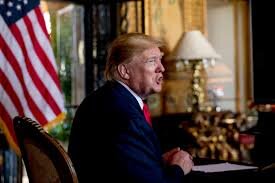Hawzah News Agency - (Washington - US) - In an apparent about-face, US Secretary of State Mike Pompeo has said the assassination of top Iranian General Qassem Soleimani was part of a “bigger strategy of deterrence,” a shift from President Donald Trump's previous claim that the deadly drone strike was carried out to prevent an “imminent” attack.
"I want to lay this out in context of what we've been trying to do. There's a bigger strategy to this. President Trump and those of us in his national security team are re-establishing deterrence -- real deterrence ‒ against the Islamic Republic of Iran," Pompeo said during a speech at the Stanford's Hoover Institute on Monday.
Immediately after the January 3 drone strike that claimed the life of General Soleimani, Pompeo alleged that Soleimani had been involved in planning an “imminent attack” in the region that “put American lives at risk.”
The secretary of state’s Monday remarks were echoed by US Attorney General William Barr.
"I believe there was intelligence of imminent attack, but I do believe that concept of imminence is something of a red herring," Barr said during a press conference in Florida. “We believed that the strike would restore deterrence and help avoid a continuing upward spiral of the violence."
Also on Sunday, Pentagon Chief Mark Esper said he “had seen no intelligence forewarning of imminent attacks on embassies,” further diluting the claim that the top Iranian general was assassinated because "he was involved in planning attacks on US targets."
Meanwhile, CNN reported that State Department officials involved in US embassy security had not been made aware of imminent threats to four specific US embassies, as was claimed by President Trump.
Trump once again asserted Monday that the intelligence available led to Soleimani's assassination, but again declined to provide evidence to substantiate his claims.
On January 3, a US drone carried out an airstrike at Baghdad’s international airport, assassinating Lieutenant General Qassem Soleimani, the commander of the Quds Force of the Islamic Revolution Guards Corps (IRGC), and Abu Mahdi al-Muhandis, the second-in-command of Iraq’s Popular Mobilization Units (PMU), as well as eight other people.
Both commanders were admired by Muslim nations for their role in eliminating the Takfiri terrorist group of Daesh in the region, particularly in Iraq and Syria.

